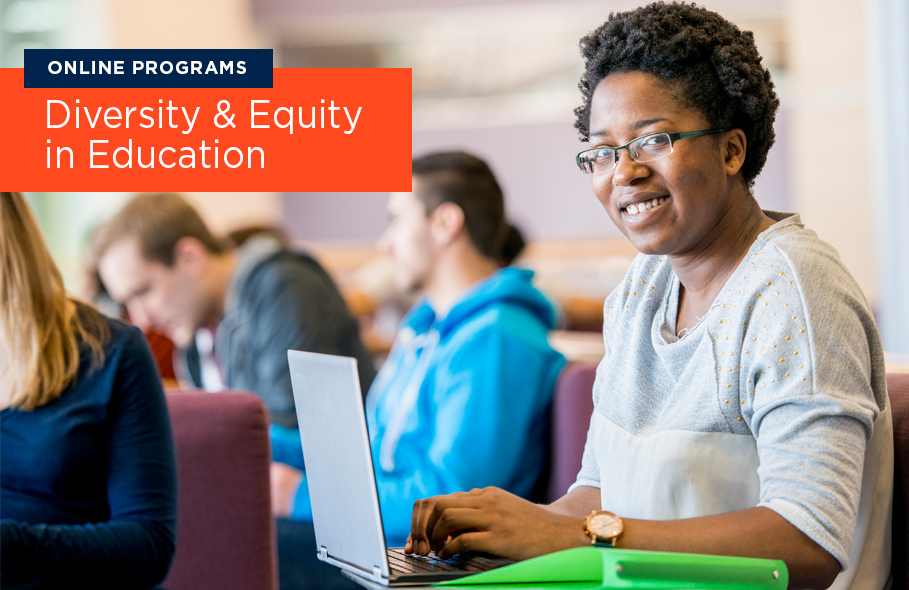A Unique Niche
by Tom Hanlon / Jul 10, 2018

College’s Diversity and Equity in Education program meets the growing needs of diverse learners
About eight years ago, the College of Education began to offer Diversity and Equity in Education programs online through the Department of Education Policy, Organization, & Leadership.
“We were ahead of our time,” says Denice Hood, the director of online programs. “Subsequent programs in diversity and inclusion have sprung up around the country, but they have not been of the University of Illinois’ stature. They don’t have the same prestige. We have a unique niche here.”
That niche is reflected in the growing numbers of students in both the online Ed.M. and Ed.D. programs.
“Diversity and Equity in Education is one of our two largest programs online,” says Hood. “We’re adding 10, 20, 30 students every year, and that’s a good trend. It’s telling us there are definitely more people who would like to do this.”
The reason for that growth is simple, she says.
“I read every application for Ed.D. and Ed.M. students, and what I’m hearing from them is ‘This is the exact combination of skills I am looking for. If I was going to create a degree program with all the issues I’m interested in or want to do research on or that is very important to me as a practitioner, this is it.’”
The University of Illinois has such a diverse population itself ... that's what I was looking for."— Gloria McElwain, a student in the Diversity & Equity program
Fittingly, the program attracts a diverse audience: K-12 teachers and administrators, other educators, business professionals in human-resource development, and even the occasional J.D. or M.D. who is working in education. A typical applicant is one who has either experienced or observed marginalization because of race, ethnicity, religious beliefs, sexual orientation, or socioeconomic status, Hood says.
“They’ve become more aware of systemic structures that perpetuate an inequality,” she says. “And they realize they can’t put the genie back in the bottle; they can’t unlearn that. So, they want to know what they can do about that. They want to know why some of these inequalities are happening in the first place, and how we can unwind those and address those better going forward.”
Hood cites the programs’ flexibility (master’s students can take between one and four classes per semester to finish the program in their own timeframe), the curated set of resources, and the engaging interaction between students and professors, and students and students, as strengths of the programs.
“Everyone comes together once a week, they share their experiences, and they have a chance to interact both synchronously and asynchronously with their professors and peers,” she says. “Adult learners are a wonderful resource for each other.”
The online Ed.M. and Ed.D. programs in Diversity and Equity in Education help students interpret and analyze information, make sense of it, and give them tools to apply in their professional lives.
“Students leave with the Illinois experience, a topnotch education,” Hood says. “They learn to be more critical thinkers and much more effective writers. They understand the research narrative and gain a fuller picture beyond their own experience. They know the historical, social, and political contexts of these issues.
“And they leave with the tools to know where to look for further information and resources they can trust. They go back to their school or company and initiate projects and programs, or weigh in on a policy in an informed way.”
Read about the impact of one student’s online experience in the College’s Diversity & Equity in Education program.